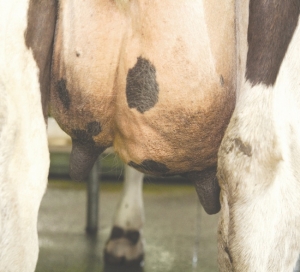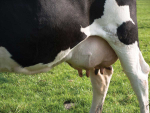DESPITE DECADES of research and control measures, mastitis doggedly remains the single most costly animal health issue on New Zealand dairy farms today, says animal health company Virbac Stockguard.
It is perhaps surprising that there have been no major recent breakthroughs in the treatment of clinical mastitis and the use of intramammary antibiotics during lactation continues to be the mainstay of treatment options as it has been for the last 50 years, the company says.
One of the less commented upon aspects of intramammary mastitis treatment in New Zealand has been the widespread adoption of products developed by major pharmaceutical companies in Europe and the US.
It was therefore long overdue to take a step back and review this situation, especially now with the growing global call for more responsible use of antibiotics in livestock, the company says.
“The question has to be asked ‘are the bacterial causes of mastitis in New Zealand sufficiently similar to those in the US and Europe that we can justify the treatment options currently available to us?’
“This is exactly what we did and the resounding answer they found was in many cases, No!
“In fact we should not be surprised at this when we consider that in Europe and the US dairy cows are housed for a significant part of the year and this exposes them to mastitis organisms not commonly seen in New Zealand. Fortunately for New Zealand pasture based dairy cows, the majority of the mastitis causing bacteria are sensitive to penicillin, in fact even today penicillin continues to be the most potent antibiotic for many of these organisms.”
Virbac Stockguard began developing a penicillin based intramammary, designed from the ground up to be a treatment for cases of mastitis in New Zealand dairy cows.
One important issue that needed addressing was that a number of bacteria recovered from cases of mastitis are resistant to penicillin: the beta-lactamase producing Staphylococci.
The answer on paper seemed straightforward enough; combine penicillin with cloxacillin, a type of penicillin that overcomes the resistant strains of Staphylococci. Virbac Stockguard would then have the basis for an intramammary treatment tailor-made for New Zealand.
After much effort, (6 years and 20 different formulations) PenClox 1200 was produced, a patented dual combination of penicillin and cloxacillin in a single intramammary syringe, developed specifically to meet the treatment needs of the majority of New Zealand mastitis cases.
The results of a recently completed New Zealand clinical field trial in which PenClox 1200 was compared with the leading New Zealand intramammary treatment is said to have vindicated the choices which Virbac Stockguard made.











